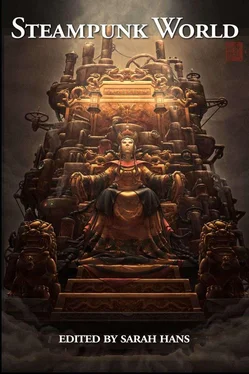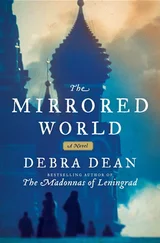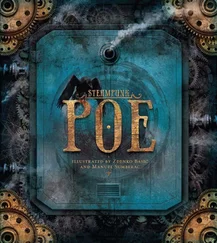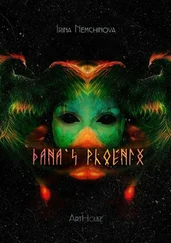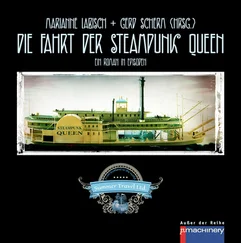There was, there was not.
The words brought a twinkle to the old man’s eyes matched only by the dance in his voice. It was the same exhilaration, a poet had once told Tariq, as when a blank page faced him and the poem had the potential to be anything.
Abd-Es-Samad wrote this on his travels to find the City of Brass. Much of what is taught in Shahrazad’s stories have forgotten the true details of that journey. It is more allegory than fact. His father’s voice filtered through clearly, undiluted by the vagaries of memory.
He was wisest among the most learned sheikhs, and he traveled further than Islam itself knew of the world. He spoke its many languages and nothing of the Levant or Northern Africa remained hidden from him.
“But he is only remembered by the tales of Shahrazad?” Tariq the boy asked. His father nodded enthusiastically, and Tariq could only flush in shame of the memory. Tariq flipped through Abd-Es-Samad’s account of Ubar itself.
It was said that Allah cursed the city, a city of giants brought low for their hubris, but this is not true, my son, and in these pages you and I will find that truth and set right a mistake.
Tariq absently flipped the page, falling upon one of the more elaborate drawings: Ubar itself, half submerged in the sands of the Rhub al Khali, the dunes as high as the city’s many statues and minarets. Ubar… a ship in a frozen sea whose masts barely touched the crest of the towering waves. He turned the page.
Before the archangel Gabriel gave Muhammad the wisdom of Allah, there were other Gods. Among them were the three daughters of the moon, Goddesses later cast down by Muhammad as the devil’s making. They were Allāt , Al-‘Uzzá , and Manāt. To her, the last, there was a temple in Ubar.
“Who was she, father?”
The Goddess of Fate.
The new picture showed the Temple of Manāt itself, stairs emerging from sand, walls marked with some mural that could only be hinted at, the statues of winged women with their arms extended as they held a bird in each hand. At the heart of the wall, flanked by the statues stood a great square archway, open to the desert.
The pages following had been torn out, the stubs yellowed and ragged. Tariq’s father thought it’d been Abd-Es-Samad who had done it, to protect something he’d discovered. Or perhaps it was someone who’d taken offense with the words that followed.
Somewhere above him, the cabin door opened and steps sounded. Raakin appeared; he studied him, a moment in cold consideration. “We approach the city.”
The sirocco raged, great banners of sand that scoured the desert with their tiger tongues. The dhow lay anchored between the dunes, the sails pulled tight against the bladder. The storm whipped about Tariq, stinging and blinding him despite his white keffiyeh.
Dunes loomed above them, to the left a sharp slope and the right a curved wall. He had no sense of direction, only that lights ahead glowed dimly as hanging orbs. Within moments, he stood among the tents and pavilions on the site. Some bore the black goat-hair walls of the Bedouin, their fabric flapping but bearing the winds. Tariq suspected these belonged to the famed local tribes of the al-Murrah or Ar-Raswashid, paid to “help” so they did not raid the expedition.
The army camp, however, was a different matter. The field grey tents bore the black eagle and iron cross of the Prussian Army, at least where winds hadn’t collapsed them. Soldiers in khaki jackets with hooded capes drawn tight around leather gas masks ran about trying to repair the damage in a losing battle against the elements.
Tariq waited for Raakin’s soft jab to remind him he was there, a shadow guarding a shadow of a man , he thought bitterly. None came. He turned to face Raakin, and instead found drawn curtains of sand. He was alone, separated from the assassin by the desert. Tariq hesitated, wondering where he should run. He didn’t move, however. He’d come to hate his father, blame him for abandoning their life for the sake of a folly. Only, here he stood in its heart, faced with the knowledge, the shame, that it may all be real.
He waited until Raakin reappeared, a curious cock of his head asking the question hidden behind the tinted goggles. Why?
“I owe it to my father to be proven wrong,” Tariq said, shouting above the storm.
Raakin’s hand fell on Tariq’s shoulder, but instead of pushing him forward, he pointed past the tents. Shadowed against the dark orange sky, shapes filtered in and out of the gloom. Broken towers that ended in brick-jagged points, pillars mounted by Sphinx-like creatures, block-like buildings… all half-entombed in sand.
“My God,” Tariq said.
“Yes,” Raakin replied, “but in your defense, the prophet Muhammad only submitted after Gabriel squeezed him three times.”
A Prussian Driedger-Bok F-11 Aerostat hovered over the sands, the sails pulled down like a massive skirt and pinned using sandbags. The grey sails formed weather breakers for the huddled soldiers sat hunched together, their masks hiding their features. Somewhere in the darkness beneath the umbrella, camels groaned in complaint and voices thick with the guttural Arabic of the bedu barked to calm them.
Overhead, the aerostat rumbled loudly, the F-11 shouldering the storm and maintaining its position. The command pavilion, tan with peaked roof and a short skirt of blue trim, sat at the center of the maze of slumped bodies and weighted mooring ropes. A pair of St. Elmo lamps framed the entry flap, the light a fluid miasma of phosphorescent white gas that cast a ghostly pallor over the men nearest them. Raakin swept open the tent flap.
Five men stood there, three in the stripes and frills of Prussian officers, their tall and spike-mounted tropical helmets resting on the map covered table. The two other men wore the black suits and red fez of Ottoman men.
The men watched with dispassionate coolness as Raakim removed his goggles and dusted himself off. Tariq fixed his gaze on the heavy-set man who stared at him; the older Arab had the half-lidded eyes of a digesting snake. Tariq almost didn’t recognize him under the added weight and the tufts of white that had crept into his hair and beard.
“Ibn Hannah,” the man said, calling him ‘son of Hannah’ as if they were old friends.
“Farouk,” Tariq said, pulling his keffiyeh down. “I’m pleased to see that you have grown fat and old.”
Farouk’s eyes narrowed. The men straightened and looked to one another, obviously unfamiliar with Arabic. Farouk said something to the men in Prussian. The men nodded, their postures stiff. One man with a thin mustache tucked his riding crop under his arm and replied, motioning to Tariq. A smile spread across Farouk’s lips, but it was Raakin who answered.
“Our patrons are impatient,” Raakin said. “They want answers.”
“Show them the book,” Farouk said.
“If I’d known you wanted it, I would have thrown it off the dhow,” Tariq replied, not budging.
“Raakin, why did you bring him?” Farouk asked. “I told you what I wanted done with him.”
“And on whose head would the sword fall if I delivered you a book and nobody to translate it?”
“I can read it,” Farouk said.
“Better than his father?”
“His father is dead.”
“His son is not,” Raakin said.
Farouk sighed and then nodded. He turned to Tariq. “How do we enter the Temple of Manāt?”
“You turned the madrassas against my father and now here you are, begging for my help?” Tariq said.
Farouk laughed. “Your father did not understand that to survive the weather, you had to dress accordingly. He angered the madrassas when it was their time.”
Читать дальше
